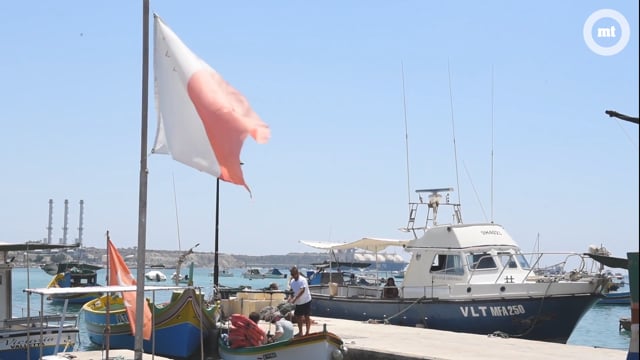Malta fishers win kannizzati concession in bid to quell ‘lampuki war’ with Tunisians
Malta’s proposal to register and regulate fishing aggregate devices in international waters accepted by governing Mediterranean fishing body

A proposal aimed at safeguarding Maltese fisherman’s use of flotation devices at sea – the kannizzati used for the capture of dolphin fish, or lampuki – has been accepted by parties to the General Fisheries Commission for the Mediterranean.
The proposal comes in the wake of protests from Maltese fishermen who have accused Tunisian counterparts of plundering their catches in what is a veritable war on the high seas.
The situation has been a tense one, with Maltese fishers reporting being threatened by Tunisian fishers wielding machetes and Molotov cocktails, and a large, green Tunisian vessel, nicknamed the ‘Bin Laden’, which threatens to ram Maltese boats.

While fishing off the floats of others is not strictly illegal, Maltese fishers say the Tunisians were destroying the floats and lines in the process of hauling in their catch, and using strong-arm tactics to stop the Maltese from accessing their equipment.
Now, a proposal from the Maltese fisheries department through the European Commission for measures on the use of anchored Fishing Aggregating Devices (FADs) for dolphin fish, was this week unanimously accepted at the GFCM meeting in Athens.
The measures will lead to a register of FAD authorisations issued by both GFCM contracting parties and cooperating non-contracting parties, with this list being communicated to the GFCM secretariat ever year on 31 July 2019, right before the start of the lampuki season.
The GFCM will also maintain a list of the authorised vessels for the fishing season and publish it on GFCM website.
A source privy to the GFCM talks said they hoped the measures will directly safeguard fishermen from the previously unregulated situation whereby FADs were being damaged or fished upon by additional countries.
Fishers will also be bound by conditions to ensure the kannizzati are covered in material that does not entangle non-target species, as well as to prioritise biodegradable materials. Kannizzati devices employ a lot of plastic and jablo. The FADs will also be marked in such a way that they can be readily identified.
The parliamentary secretary for fisheries and agriculture Clint Camilleri remarked that this was an important decision for Maltese fishers. “It is a positive step forward towards making the sector operate more sustainably with clearer parameters. These measures give fishermen exclusivity on their FAD.”






.jpg)















